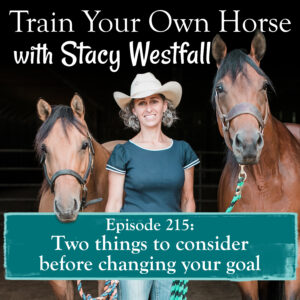Episode 215: Two things to consider before changing your goal

If you’re saying to yourself, “That was too much. I need to cut back this year.”
This podcast is for you.
There are times when adjusting your goals is in your best interest.
But before you decide if you will repeat a goal or change it, remember to factor in what HAS changed…which is you.
YOU are not the same person you were a year ago.
If you repeat the same goal, you will not be on the same journey…even though you are heading to the same destination.
At the beginning of last year, you didn’t know all the things that wouldn’t work or plans that would fall through. Lots of what you discovered was what DIDN’T work, and that can feel overwhelming.
Sometimes people throw out the idea of repeating a goal because they remember feeling overwhelmed. But remember, you are a different person, with different knowledge.
Taking time to reflect on what you have learned and what you would do different might reveal that you can get twice as much done this next year with half as much effort.
You’ll still have the option of changing your goals.
There isn’t a right or wrong answer here…but there is a way to make the decision that feels like embracing everything you learned, and then making a choice.
SUBSCRIBE TO THE PODCAST HERE:





YOURS FREE
WHY IS MY HORSE...?

